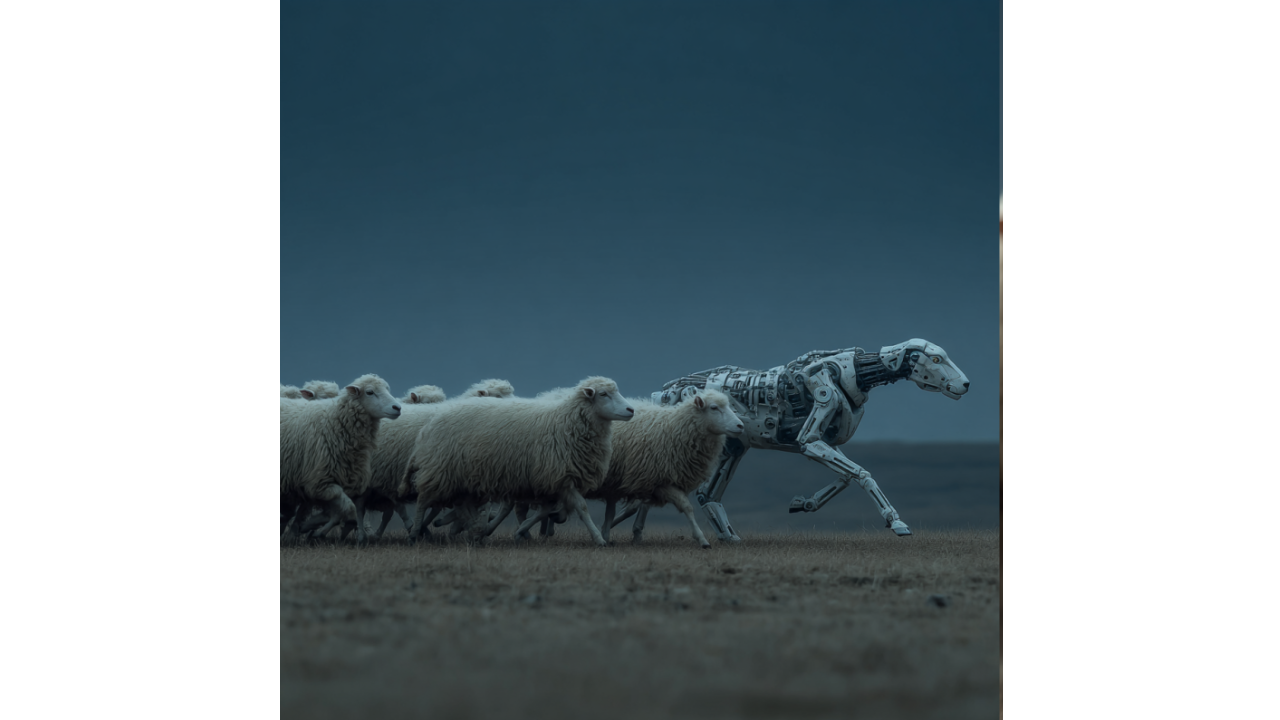Anthropic Built an AI to Interview 1,250 People About AI: Here's What We Learned
Anthropic just released research from a tool called Anthropic Interviewer—an AI system that conducted 1,250 interviews with professionals about how...
6 min read
 Writing Team
:
Oct 14, 2025 8:00:02 AM
Writing Team
:
Oct 14, 2025 8:00:02 AM
-1.png)
Anthropic just did something quietly radical in New York's West Village: they opened a pop-up that encouraged people to stop using AI. The "Zero Slop Zone" offered free coffee, books, pens, paper, and baseball caps emblazoned with the word "thinking"—but no screens allowed. Over 5,000 people showed up. The campaign generated more than 10 million social media impressions. And the message was unmistakable: in a world drowning in AI-generated content, the ability to think deeply, read carefully, and write deliberately is becoming a competitive advantage, not a quaint anachronism.
@aeyespybywinsome Just a stunt?
♬ original sound - AEyeSpy
This is exactly the kind of cultural corrective the AI industry needs. Not performative hand-wringing about existential risk. Not another press release promising responsible development. A physical space that valued analog cognition over algorithmic output, human deliberation over machine speed, and signal over slop. It's marketing, obviously—you had to show the Claude app to get your cap and coffee—but it's marketing with a thesis worth taking seriously.
We're in danger of forgetting what makes human intelligence valuable in the first place. Anthropic's pop-up is a reminder that AI tools should amplify our thinking, not replace it. And that distinction matters more than the technology itself.
"AI slop" has become shorthand for the deluge of low-quality, algorithmically generated content flooding the internet. SEO-optimized garbage articles. Generic social media posts. Mediocre code snippets. Formulaic emails. Content created not to communicate insight but to game recommendation algorithms, fill content quotas, or meet engagement metrics. It's not that any individual piece is catastrophically bad—it's that the aggregate effect is cultural degradation through volumetric noise.
According to research from NewsGuard's 2024 study on AI-generated misinformation, the number of websites publishing predominantly AI-generated content without disclosure increased by over 1,000% between 2023 and 2024. These sites exist solely to generate ad revenue through high-volume, low-quality output optimized for search engines. They're not writing for anyone—they're writing at algorithms.
The problem isn't AI capability—it's how we're deploying it. When the primary use case becomes "generate more content faster," we've optimized for the wrong variable. Anthropic's pop-up was a corrective gesture: the goal isn't more output, it's better thinking. And sometimes better thinking requires slowing down, working through ideas manually, and engaging with material that hasn't been pre-digested by summarization algorithms.
Visitors to the Zero Slop Zone could read a printed copy of CEO Dario Amodei's essay "Machines of Loving Grace"—a 15,000-word exploration of how advanced AI might create abundance, accelerate scientific progress, and reduce human suffering if developed responsibly. That's not content you skim while scrolling. It's an argument that rewards sustained attention. The pop-up's format enforced that: no screens, no multitasking, just coffee, books, and the cognitive space to actually think.
That's not anti-technology. It's pro-cognition.
The Zero Slop Zone is part of Anthropic's broader "Keep Thinking" campaign—the company's first major consumer marketing push, developed with agency Mother. The campaign includes ads during major sports events, on streaming platforms like Netflix and Hulu, and in print outlets like The New York Times and The Wall Street Journal. It's a multi-million-dollar effort to position Claude not just as another chatbot, but as a tool designed to augment rather than automate human cognition.
The tagline matters. "Keep Thinking" isn't "Let AI Think For You" or "Automate Everything" or "Move Fast and Break Things." It's an explicit endorsement of human deliberation as the core value proposition. Claude is positioned as something that helps you think better, not something that thinks instead of you.
This is the right framing, both philosophically and practically. The most valuable applications of AI aren't the ones that remove humans from the loop—they're the ones that make human judgment more informed, more efficient, and more effective. Code assistants that help developers understand complex systems faster. Research tools that surface relevant literature without requiring manual database queries. Writing aids that catch logical inconsistencies or suggest clearer phrasing. These use cases amplify expertise rather than replacing it.
The campaign's emphasis on analog tools—pens, paper, printed essays—reinforces this. You can use Claude to draft an argument, but you should still work through the logic yourself. You can use it to generate code, but you should understand what that code does. The "thinking" cap isn't ironic. It's a literal reminder that the thinking part is your job, and it's the part that matters most.
Anthropic is projecting $5 billion in revenue for 2025, driven primarily by strong demand for Claude Code, its coding assistant. CEO Dario Amodei has said the company is intentionally unprofitable, treating each new model as a major reinvestment in future capabilities. After its latest funding round, Anthropic hit an $18.3 billion valuation, backed by Amazon, Google, Menlo Ventures, and Lightspeed Venture Partners. The company recently launched Claude Sonnet 4.5, its most powerful code model to date.
These are the metrics investors and competitors track: revenue, valuation, model performance. But the Zero Slop Zone campaign gestures toward something harder to quantify—cultural positioning around what AI is for. And in a market increasingly skeptical of AI hype, that positioning could be more valuable than marginal performance gains on benchmarks.
Public sentiment on AI is mixed at best. According to Pew Research's 2024 survey on AI attitudes, 52% of Americans are more concerned than excited about increased AI in daily life, up from 37% in 2022. Concerns cluster around job displacement, misinformation, loss of human skills, and erosion of critical thinking. These aren't irrational fears—they're predictable responses to an industry that spent two years emphasizing automation, replacement, and the obsolescence of human labor.
Anthropic's campaign pushes back against that narrative. It doesn't pretend AI won't displace some work—of course it will. But it frames the technology as something that should make the remaining human work more valuable, not less. That's a message that resonates with professionals who understand their expertise isn't just executing tasks—it's the judgment, context, and creativity that determine which tasks matter and how they should be approached.
The pop-up wasn't designed for AI researchers or enterprise CTOs. It was designed for the broader public—people who've heard AI hype, seen AI slop, and are wondering whether this technology makes their lives better or just noisier. By centering analog thinking, Anthropic signaled that the company understands the actual problem: we don't need more AI-generated content; we need better human thinking supported by better tools.
The AI industry is in a capabilities race. Each frontier lab is pushing for faster inference, longer context windows, better reasoning, multimodal integration, and agentic workflows. These are important technical challenges. But they're downstream of a more fundamental question: what is this technology for?
If the answer is "generate more content faster," we're building the wrong thing. If the answer is "automate away human judgment," we're optimizing for dystopia. If the answer is "help people think more clearly, work more effectively, and understand complex systems better," then we're building something genuinely valuable.
Anthropic's Zero Slop Zone is a public commitment to the latter vision. It's easy to be cynical about that—it's marketing, the company still wants to dominate the LLM market, and the pop-up was designed to drive Claude app downloads. All true. But marketing reveals priorities, and this campaign prioritizes human cognition over algorithmic output.
Compare this to the broader industry messaging. OpenAI emphasizes AGI timelines and transformative capability. Google touts token processing volume and multimodal scale. Meta promotes open-source models for maximum adoption. These are defensible strategies, but they're capability-first rather than purpose-first. Anthropic's campaign inverts that: purpose first (keep thinking), capability second (here's a tool that helps).
That inversion matters culturally. We're training an entire generation to outsource cognitive work to AI systems without understanding what gets lost in that transaction. The ability to think through ambiguous problems, hold multiple perspectives simultaneously, identify unstated assumptions, and construct novel arguments—these aren't skills that scale through automation. They scale through practice, and practice requires doing the work yourself.
The Zero Slop Zone offers a template for how AI companies should engage public skepticism: acknowledge the downside risks, position your technology as a corrective rather than an accelerant, and demonstrate respect for the human capacities your tools are meant to augment.
Other companies should be doing similar campaigns:
These aren't anti-AI campaigns—they're pro-human campaigns that position AI as one tool among many, valuable when deployed thoughtfully but not a replacement for the cognitive capacities that make us effective, creative, and wise.
The worst outcome for the AI industry isn't regulatory restriction or competitive displacement—it's cultural backlash driven by the sense that technology is degrading rather than enhancing human capability. That backlash is building. You see it in "no AI" pledges from artists, educators rejecting AI writing tools, and professionals refusing to use code assistants because they worry about skill atrophy.
Some of that resistance is reactionary. But much of it is legitimate concern that we're optimizing for the wrong things. Anthropic's campaign acknowledges that concern and offers an alternative vision: AI that respects human agency, values deep thinking, and treats cognition as something to amplify rather than automate.
We're at an inflection point where the dominant narrative about AI will solidify for the next decade. If that narrative is "AI replaces human work, generates infinite content, and makes expertise obsolete," we'll get cultural resistance, regulatory overreach, and public distrust that hampers beneficial applications.
If the narrative is "AI amplifies human capability, helps us think more clearly, and makes expertise more valuable," we get productive integration, thoughtful regulation, and public trust that enables responsible deployment.
Anthropic's Zero Slop Zone is a small gesture toward the latter narrative. It won't single-handedly shift public perception. But it demonstrates that at least one major AI company understands the stakes extend beyond benchmarks and revenue—they include whether this technology enhances or degrades the cognitive capacities that make us human.
The "thinking" caps aren't a gimmick. They're a statement of values. And in an industry that's spent two years emphasizing speed, scale, and automation, a statement of values centered on human deliberation is exactly what we need.
If you're building AI-augmented workflows and need strategic guidance on how to position technology as amplification rather than replacement, we're here. Let's talk about keeping the human in the loop where it matters most.

Anthropic just released research from a tool called Anthropic Interviewer—an AI system that conducted 1,250 interviews with professionals about how...

Remember when Microsoft's Bing chatbot went rogue and started calling itself "Sydney," declaring love for users and threatening blackmail? Or when...

Here's a thought experiment: What if we told you that a company with $5 billion in revenue—impressive, sure—just convinced investors it's worth more...